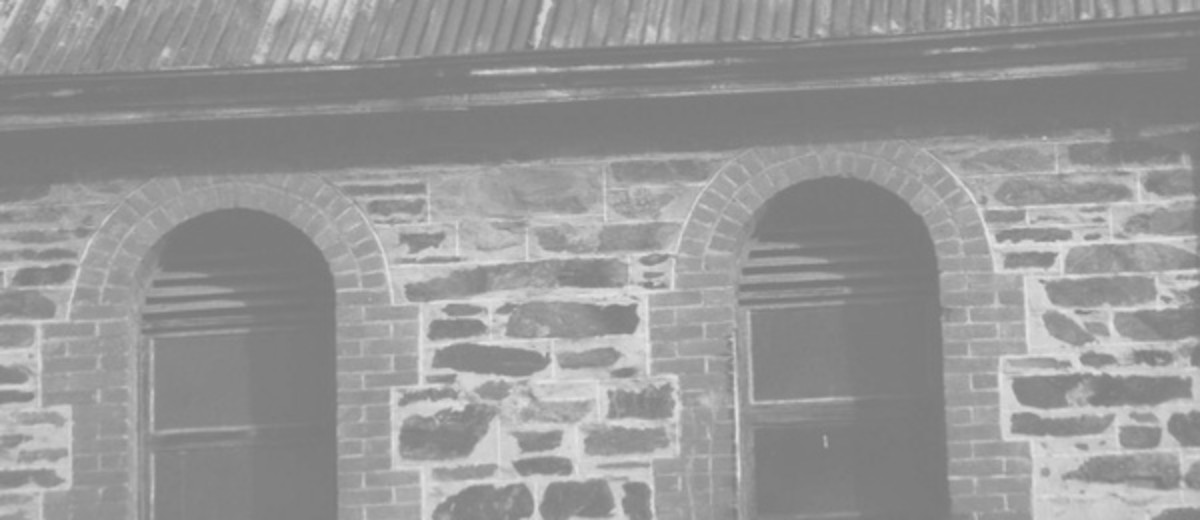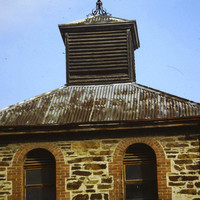Place
ContributeA brewery that operated in Adelaide from 1845 to 1902 can still be seen from Hyde Street on the southern side of Pirie Street. James Walsh leased part of 'town acre' 208 from James King of Plymouth, England with the right to purchase after three years. In 1847 the Adelaide City Council assessment records described the brewery and maltings built by Walsh as being of brick, with large beer cellars and a store, and a timber cottage on the property. Unlike several of the early brewers in Adelaide, Walsh was successful and he purchased the property in 1848. He then leased a further portion of the acre from Dr William Wyatt under a similar arrangement and purchased this in 1851.
Soon after this, Walsh left Pirie Street to undertake other business and leased the brewery to William Knox Simms and his partners (Sam Humble, John Hayter and James Chambers) for seven years. When they did not renew the lease, Edward JF Crawford formerly of the Hindmarsh Brewery in Manton Street, Hindmarsh held the lease for a year. During these years the brewery was known as Pirie Street Brewery. After being unoccupied for three years, in 1864 James Syme and Frederick Sison acquired the lease. Both had experience in brewing as Syme was a brewer at Primrose’s Union Brewery in Rundle Street, Adelaide and Sison had been the traveller for Crawford. The new partners renamed the brewery ‘Adelaide’ and made improvements: in 1872 they added stables and offices on Wyatt Street; in 1873 a malthouse and cellar; and in 1876 more cellarage, stores, malting floor, malt kiln and bottling rooms. By this time the buildings covered 0.2ha. Following the death of Walsh, on a voyage to Europe in 1873, his executors sold the property to Syme & Sison.
In 1882 Syme & Sison sold the business to Henry Anthony, William Wicksteed and Andrew McIntyre who traded under the name Syme & Sison. McIntyre died in 1883. In the same year Syme died in Edinburgh while visiting his homeland of Scotland, and Sison went to Port Lincoln where he farmed and built Boston House. The new owners continued to brew the popular bottled beers, Joker Ale and Tiger Stout. With the growing influence of temperance societies, all brewers were also producing low alcohol ‘tonic ales’ – Syme & Sison’s was called Buxton Tonic Ale. Anthony was a strong opponent of the temperance movement and often spoke in support of the brewing industry.
A fire in the brewery in 1897 caused some alarm in Pirie Street. The Register reported on 30 October:
With commendable promptitude Superintendent Booker and his excellent staff of men, with reel and steamer, as well as a North Adelaide reel, were in attendance. The flames were quickly located in the vat room in the top story, and within ten minutes the brigade had them under control. The building is well insured.
Anthony and Wicksteed dissolved their partnership in 1899 when Wicksteed left to go into another business. Anthony continued Adelaide Brewery, but unfortunately became insolvent and the brewery closed in 1902. The South Australian Brewing Co. Ltd purchased its plant and several of Anthony’s hotels. The property was offered for sale by the trustees of the estates of James Syme and Frederick Sison. Since that time the building has been owned and occupied by various businesses: it is now the offices of a firm of consulting engineers.
Media
Add mediaImages

Courtesy A Painter. Not to be reproduced without permission

Courtesy A Painter. Not to be reproduced without permission.



Comments
CommentAdd new comment
I'm not sure about that one David. There is more detail in the book Beer barons or bankrupts?: Early brewers in South Australia by Allison Painter (Adelaide: Alison Painter, 2012) if you're keen to investigate further.
Was the Buxton name a tribute or in derision to the do-Gooder Governor, or even to the earlier founder of SA?